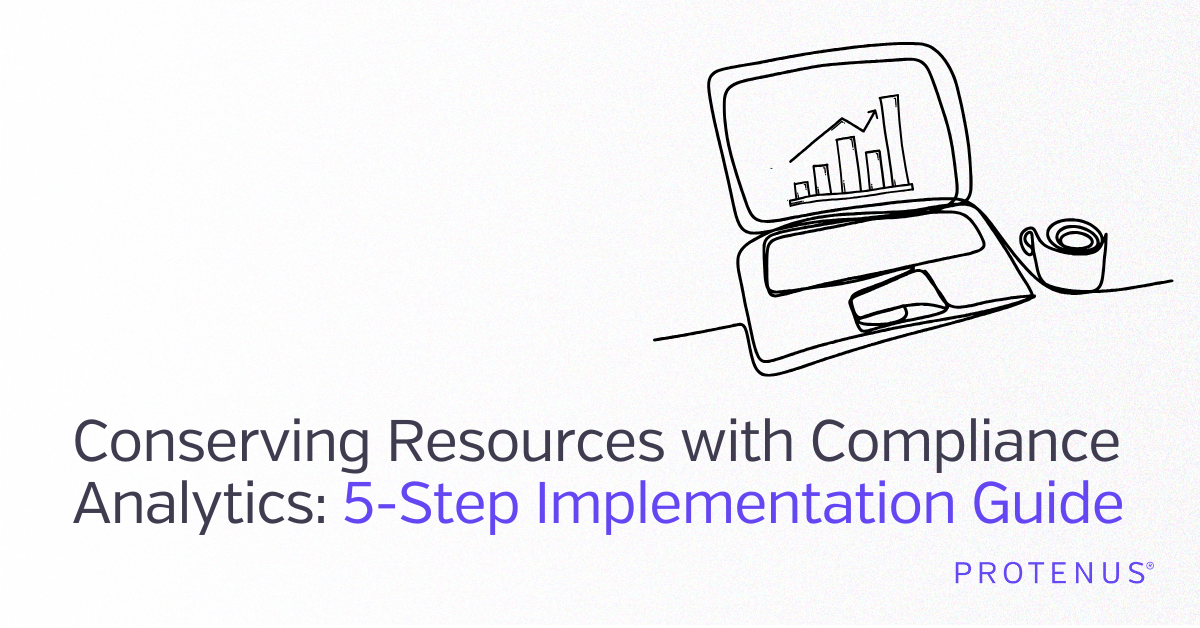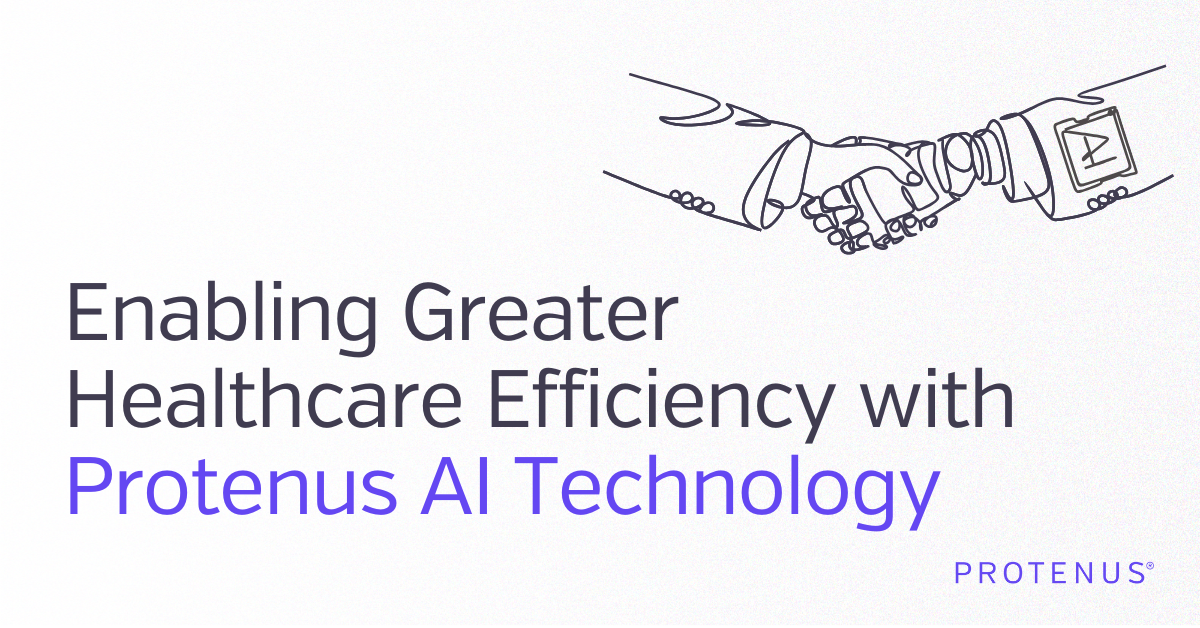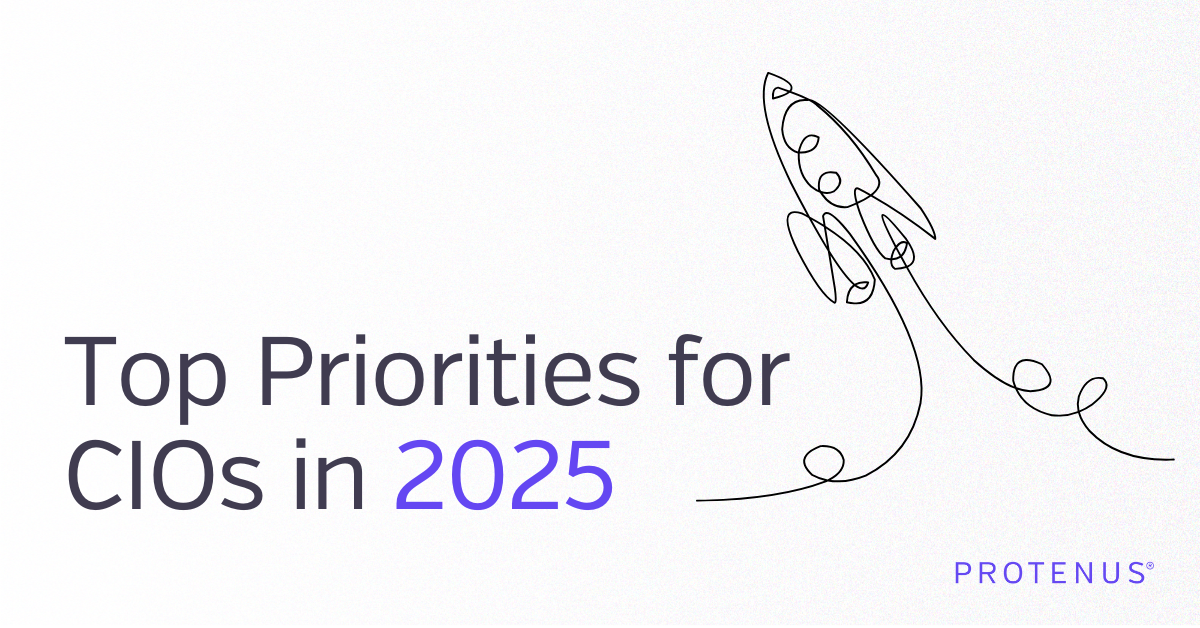Share this

How a Large Academic Medical Center Leverages AI to Scale Compliance
by Angie Stewart, Content Specialist, Protenus on July 21, 2021
For large academic medical centers, ensuring compliance is an enormous undertaking. Often strapped for resources, compliance teams must investigate and enforce system-wide compliance with an increasingly complicated web of rules and regulations.
In addition, many AMCs are among the largest employers in their communities. At organizations where tens of thousands of workers have access to sensitive patient data, compliance teams are tasked with managing the significant potential for insider-related incidents, all while providing education and other measures to prevent future incidents.
Don't miss out: At HIMSS21, UC Davis Compliance Investigations Manager Alessia Shahrokh and Protenus CEO Nick Culbertson will discuss the organization's use of healthcare compliance analytics and share best practices.
These are the kinds of challenges facing the Compliance Office at UC Davis Health, which serves not only the medical center itself, but also the outpatient clinics (on- and off-campus), the School of Medicine, the School of Nursing, and UC Davis Health research programs. Education and training, privacy audits, consultations, and investigations all fall to this single department, led by a team of subject matter experts.
"There are several functions and subjects housed within our compliance office, like with most academic medical centers," Compliance Investigations Manager Alessia Shahrokh told Healthcare Finance News.
Thus, to sufficiently protect patients, employees, and the organization as a whole from new, existing, and emerging threats — as well as their consequences — the Compliance Office decided to supplement its team's expertise with advanced technology. It identified four key goals:
- Scale privacy and diversion monitoring using industry best practices
- Gain efficiencies from a centralized monitoring approach and streamlined workflows
- Proactively identify risk across the organization by leveraging AI
- Improve the team's ability to accurately detect and deter inappropriate activity
In Protenus, a leading healthcare compliance analytics provider, the UC Davis Health Compliance Office found sophisticated technology that makes it possible to quickly and responsibly scale compliance efforts. By leveraging artificial intelligence to detect anomalies in EHR activity, and machine learning to continuously refine the alerts users receive, Protenus empowers compliance experts to better understand and prevent improper access to patient data, the diversion of controlled substances, and other inappropriate behaviors.
After implementing Protenus, the Compliance Office of UC Davis Health has documented several major achievements:
-
-
- Increased and expedited the number of investigations accurately identifying improper accesses
- Realized new opportunities for process improvement and user education
- Achieved more efficiency with machine learning automatically prioritizing cases that pose the greatest organizational risk
- Gained the ability to better understand and prevent inappropriate behavior
- Fielding a higher volume of questions and consultation requests due to employee awareness of ongoing monitoring
-
With robust compliance monitoring tools and processes in place, UC Davis compliance experts do not struggle to keep pace with an expanding number of threats — both internal and external — despite persisting resource constraints. The team's confidence is proof that while maintaining compliance will only become more important in the coming years, with the use of advanced healthcare compliance analytics, it doesn't have to become more difficult.
Share this
- December 1, 2024 (3)
- November 1, 2024 (1)
- October 1, 2024 (2)
- September 1, 2024 (1)
- August 1, 2024 (1)
- July 1, 2024 (1)
- June 1, 2024 (1)
- May 1, 2024 (1)
- March 1, 2024 (2)
- February 1, 2024 (3)
- January 1, 2024 (1)
- December 1, 2023 (1)
- November 1, 2023 (3)
- October 1, 2023 (3)
- September 1, 2023 (1)
- August 1, 2023 (1)
- July 1, 2023 (2)
- April 1, 2023 (1)
- March 1, 2023 (1)
- February 1, 2023 (1)
- December 1, 2022 (3)
- November 1, 2022 (3)
- October 1, 2022 (1)
- September 1, 2022 (1)
- August 1, 2022 (2)
- June 1, 2022 (4)
- May 1, 2022 (5)
- April 1, 2022 (1)
- March 1, 2022 (4)
- February 1, 2022 (3)
- November 1, 2021 (2)
- October 1, 2021 (3)
- September 1, 2021 (3)
- August 1, 2021 (3)
- July 1, 2021 (4)
- June 1, 2021 (2)
- May 1, 2021 (2)
- April 1, 2021 (2)
- March 1, 2021 (5)
- February 1, 2021 (1)
- January 1, 2021 (1)
- December 1, 2020 (1)
- November 1, 2020 (2)
- October 1, 2020 (2)
- September 1, 2020 (3)
- August 1, 2020 (2)
- July 1, 2020 (2)
- June 1, 2020 (6)
- May 1, 2020 (3)
- April 1, 2020 (4)
- March 1, 2020 (2)
- February 1, 2020 (4)
- January 1, 2020 (2)
- December 1, 2019 (2)
- November 1, 2019 (1)
- October 1, 2019 (1)
- September 1, 2019 (1)
- August 1, 2019 (1)
- June 1, 2019 (1)
- April 1, 2019 (1)
- February 1, 2019 (1)
- January 1, 2019 (1)
- December 1, 2018 (2)
- November 1, 2018 (2)
- October 1, 2018 (2)
- September 1, 2018 (3)
- August 1, 2018 (1)
- July 1, 2018 (2)
- June 1, 2018 (2)
- May 1, 2018 (1)
- April 1, 2018 (1)
- March 1, 2018 (2)
- February 1, 2018 (6)
- January 1, 2018 (2)
- September 1, 2017 (2)
- August 1, 2017 (2)
- June 1, 2017 (2)
- May 1, 2017 (1)
- April 1, 2017 (1)
- March 1, 2017 (2)
- February 1, 2017 (5)
- January 1, 2017 (2)
- December 1, 2016 (3)
- November 1, 2016 (5)
- October 1, 2016 (4)
- September 1, 2016 (8)
- August 1, 2016 (4)
- July 1, 2016 (4)
Subscribe by email
You May Also Like

Conserving Resources with Compliance Analytics: A 5-Step Implementation Guide

Enabling Greater Healthcare Efficiency with Protenus AI Technology

.png?width=1000&height=140&name=Bluesight%20%2B%20Protenus%20Logo%20%20(1).png)